Church

For many Asian immigrants and refugees, coming to the United States wasn’t fully voluntary, but a result of war and poverty. Just as the Hebrews needed to learn to live as exiles, Asian Americans needed to find a way to make a new home in a new land. While their hardships reflect the difficulty of exile, Jimmy’s and Mary’s familial love and corporate responsibility also model for me how we Christians are to follow Jesus in the midst of this empire.
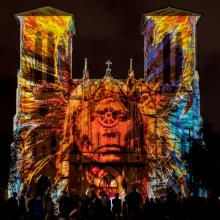
A young indigenous man from the Quinault Indian Nation was killed on Saturday night by a man witnesses describe as a white, in his 30s, who shouted racial slurs before backing over two men with his pickup truck, reports the Seattle Times. But you probably haven’t heard this news, not with all the other news floating through cyberspace.

Most often Pentecost comes to us as a momentous Christian occasion of spiritual power, ethnic unity, gender equality, multi-generational comradery, and immigrant hospitality. But when the moment has passed, it gives way to the more ignoble features of life and community, like spiritual apathy, sexism, racial prejudice, ageism, xenophobia, etc.

This past year, the depression I had suffered twenty years ago returned with a vengeance. I made plans to end my life. Friends begged me to seek help. And I did – eventually. But one of the primary reasons I delayed getting help was because I am a pastor. I agonized over the contradiction of my life. As a pastor, I was expected to have all the answers. As a person with untreated depression, I felt like I had nothing but questions. And I worried that acknowledging I have a mental illness would irreparably damage my relationship with the church

Paschal pardon here exemplifies a miscarriage of justice for one of the prisoners. The custom condemns Jesus, whose guilt is dubious. Ultimately, Jesus divinely conquers the unjust system at hand when he walks freely among his disciples in the flesh, three days after he is crucified as a criminal. But the possibility of a triumphant erasure of crime in the U.S. is limited. Constitutionally, the president can offer clemency — or “leniency” — for any federal offense, aside from cases involved with impeachment, by two methods: commute, which lessens the sentence but retains civil restrictions like the loss of the right to vote, or pardon, which eliminates the sentence entirely.

But, interpretation of who Matthew 25:40 refers to as “the least of these” has gained attention most recently with many claiming that Jesus was speaking solely about his disciples or other Christians instead of the marginalized and oppressed communities that the verse so clearly seems to point to.
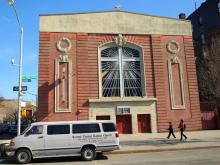
The neighborhood has long been home to numerous historic and not-so-historic houses of worship of nearly every size and type. Here you can find congregations of Muslims, Hebrew Israelites, AMEs, Baptists, Presbyterians, Pentecostals, and everything else in between.
So who cares if a few churches have to be razed to make Harlem “great again,” right?
I do.

After sessions on gravitational waves, nuclear forensics, and artificial intelligence, one of the world’s largest general science conferences invited attendees to hear from an Episcopal priest.
The Rev. Fletcher Harper preached on climate change, and how to get a vast segment of the world’s population to pay better attention to what scientists know but many others doubt: that the problem is worsening and portends disaster.
“My entreaty for scientists is to be able to speak publicly about why you care,” said Harper, executive director of GreenFaith, an interfaith nonprofit that aims to galvanize religious people to safeguard the environment.
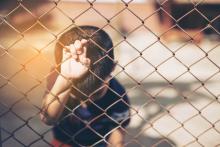
Safety is defined in the nineteenth chapter of Leviticus as abiding in God’s sense of justice —“not be partial to the poor or defer to the great: with justice you shall judge your neighbor.” Justice is love and love is behaving out of fairness to all — even those we see as a risk. We cannot expect to be in safety unless we treat others as we wish them to treat us.
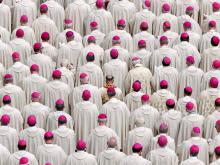
The Vatican has launched a website as part of its efforts to protect children from clerical sexual abuse and promote healing and reconciliation.
It’s the first time that the Vatican has published resources and documents on the issue, and the site is sponsored by the commission set up by Pope Francis to protect minors.

By not hiding her HIV-positive status, Princess Kasune—an opposition MP in Zambia—is subverting the stigma of HIV/AIDS in her country, reports BBC News.
In 1997 Kasune tested positive for HIV and defied her husband’s desire to keep her status a secret. For this her church excommunicated her and her family disagreed with her decision.
“I long to see an HIV-free generation and hopefully a day without stigma,” said Kasune.
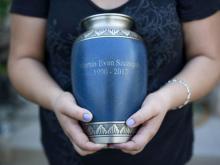
Catholics can be cremated under certain conditions, the Vatican has said, but loved ones should not scatter the ashes at sea, or on land, or into the wind, nor should they keep them in mementos or jewelry.
Instead, say new guidelines released on Oct. 25, the remains should be stored “in a sacred place” that “prevents the faithful departed from being forgotten” and “prevents any unfitting or superstitious practices.”

It is time for the American church to engage in this liberation for singles. As we have seen with racism and imperialism, cultural ideologies can transform into oppressive theologies, which then need to be answered with a call for liberation. This must include repentance and reconciliation, relinquishing of power, and making room for a new system to be put into place — a system that is made by, cares for, and affirms single people.
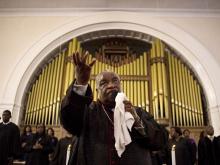
Top-notch preaching most attracts people looking for a new place to pray.
That's the conclusion of a new Pew Research Center study, released Aug. 23, which asked 5,000 people about their search for a new church or other house of worship.

Instead of the traditional vacation Bible school, this downtown church partnered with seven other congregations — black, white, Baptist, Jewish, Episcopal, Pentecostal, and nondenominational — to put on a community-organizing camp for kids aged 4 to 12.

The geography of poverty and its proximity to such opulence is one of the oddities of the city. Juxtaposed against the seeming wealth of the church, a community has formed — they live, literally, on the margins of this great structure. The church allows it. That the city frowns upon it is another story.
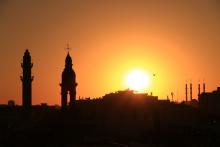
IN FALL 1884, the congregation that became Temple Israel opened its doors as the first Jewish synagogue in the state of Nebraska. From its inception, Temple Israel was a Reform congregation, a theologically progressive denomination that stresses the social justice imperatives of Judaism. Yet the early members of Temple Israel included not just Reform Jews, but Conservative and Orthodox Jews as well; navigating these interdenominational relationships would prove to be a significant part of the congregation’s early development.
Fast forward 130 years and Temple Israel is one of three houses of worship embarking on a unique interfaith partnership: a single campus in west Omaha that will house a Jewish synagogue, a Muslim mosque, a Christian church, and a fourth building for interfaith fellowship.
Aryeh Azriel, Temple Israel’s senior rabbi, planted the seeds for this project, known as the Tri-Faith Initiative, in 2006 when he reached out to the American Muslim Institute, another local religious community that was looking to construct a new building.
“The original idea started as a result of looking for a partnership in sharing parking lots,” Azriel told Sojourners.
The two communities had forged a relationship in 2001 when, following the Sept. 11 attacks, Azriel led members of Temple Israel in encircling a local mosque to protect it from the Islamophobic attacks they were seeing in the national news.
Syed Mohiuddin, president of the American Muslim Institute, agreed to the partnership; he liked the idea of the two religious groups sharing a parking lot with each other rather than with retail stores or other commercial development. However, it didn’t take long for the two communities to realize the project had greater potential than a shared parking lot. If they could find Christians willing to join them, they could build a shared campus for all three Abrahamic faiths, the first such campus in the world—at least to their knowledge.

As it turns out, the faith community may have a marked advantage when it comes to dealing with global warming. According to University of British Columbia social psychologist and author Ara Norenzayan, religion primes cooperation. In his work, Norenzayan has found religious societies to be more cooperative than non-religious societies — particularly where a group's survival is threatened.
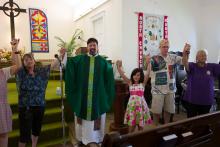
Rev. J. Barrett Lee is pastor of North Presbyterian Church in Kalamazoo, Mich., whose mission is to "practice our ministry alongside people who live with mental illness." Website: wearenorth.org
1. Why is it important to talk about mental illness? The only time people want to talk about mental illness as a broad social issue is when a mass shooting occurs. It’s a huge problem because it perpetuates the myths of what mental illness is and how people with mental illness operate. People think, “What if some mentally ill person gets a gun and is going to shoot up a church or a school?” But the reality is that people who live with mental illness are actually 10 times more likely to be victims of violence than perpetrators of violence. I don’t know a single person in my church who even owns a gun.
2. How is North Presbyterian’s call to ministry unique? We decided that our ministry with people living with mental illness was not going to be a side project. It wasn’t going to be something we did in addition to our ministry. We felt God calling us to reorient the entire life of our congregation around making a space where all people can be treated as equal partners in Christ’s service. We started the Togetherness Group, a weekly social activities group where the whole goal is to be together. We do lots of fun activities, whether that’s going out to lunch, going to the zoo, or just playing bingo on a rainy day. For a lot of folks, this is their one safe space each week when they can get out of the house, be treated like a human, embrace their own humanity, have a good time, and take some of the pressure off of daily living.

An Italian bishop has clashed with a pair of priests who want to invite Muslims to pray inside their churches in a bid to promote tolerance in a diocese in Tuscany.
“The deserved, necessary and respectful welcome of people who practice other faiths and religions does not mean offering them space for prayers inside churches designed for liturgy and the gathering of Christian communities,” Bishop Fausto Tardelli of Pistoia said in a statement reported on March 19.